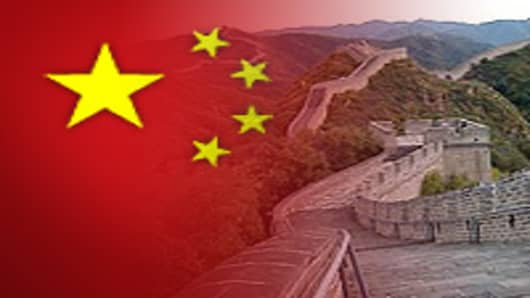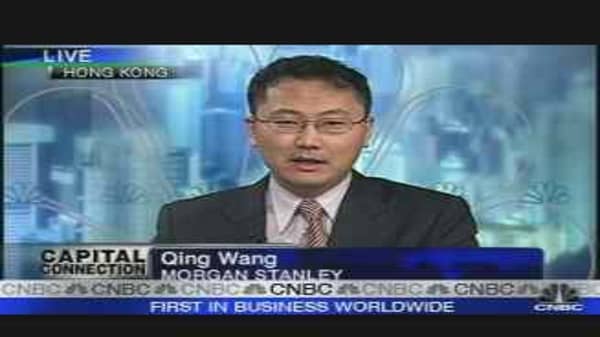China's annual gross domestic product (GDP) growth eased to 11.5 percent in the third quarter, but the slowdown from a 12-year high of 11.9 percent in the second quarter was not enough to dispel expectations of fresh policy curbs to stave off overheating.
The outcome, which was in line with market forecasts, means China could well grow this year at the fastest rate since 1993 and brings it closer to overtaking Germany as the world's third-largest economy.
"Industrialization, urbanization and China's global manufacturing power are the three engines that continue to drive very high growth," said Chen Xingdong, chief economist at BNP Paribas Peregrine in Beijing.
GDP over the first three quarters expanded 11.5 percent and for the first time this year, China will contribute more than the United States to global growth, according to the International Monetary Fund.
Although that is a source of pride for the ruling Communist Party, which ended its five-yearly Congress on Monday, policy makers know they can have too much of a good thing.
Li Xiaochao, the spokesman of the National Bureau of Statistics, told a news conference that the problems facing the economy were still pronounced, with growth and inflation still too high.
The economy has now grown at a double-digit pace for seven quarters, but at a cost of environmental degradation, galloping energy consumption and rising inflationary pressure.
Premier Wen Jiabao said on Wednesday his government would keep a tight grip on policy for the rest of the year to curb inflation and brake investment, the main driver of growth.
"What is needed is more attention to the quality of growth and environmental protection," Chen said.
The statistics office, which released the growth figures, confirmed a disclosure by a senior official last week that annual consumer inflation slowed to 6.2 percent in September from a decade high 6.5 percent in August.
Economists took heart from the moderation but said the central bank, which has already raised interest rates five times this year, was likely to jack up borrowing costs further.
"Inflation was lower than August, but one month's figures do not mean a reversal in the uptrend. Data from the real economy would suggest otherwise," said Chris Leung, an economist with DBS in Hong Kong. "I expect an interest rate rise any time. It's safe to say there'll be one
more rise this year. I'd not be surprised if there were two," he said.
But Zhu Jianfang, chief economist at CITIC Securities in Beijing, said central bank governor Zhou Xiaochuan was likely to wait and see how the economy responds to past belt-tightening. "I think the various tightening steps are beginning to take hold. Investment is still fast, but not as fast as I had expected," he said.




